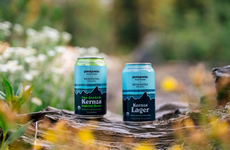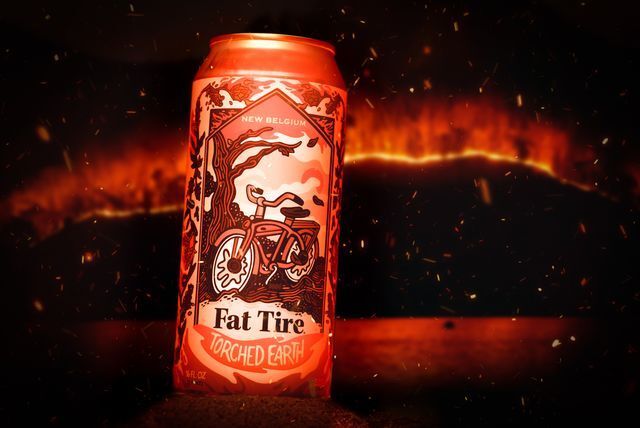
Fat Tire Debuts "Lousy" Beer On Purpose As Climate Change Warning
Grace Mahas — April 23, 2021 — Eco
References: thedieline
In an effort to raise awareness about climate change, Flat Tire debuted a "lousy" beer called 'Torched Earth' made from ingredients that, in the future, will be harvestable. The beer features a "smokey malt" flavor to mimic the wildfire-affected water supply.
In addition, Torched Earth is crafted from drought-tolerant millet and buckwheat instead of barley or wheat, since those grains will be harder to produce in coming decades thanks to the devastations of climate change. To create the bitter, ho taste, the Flat Tired opted for dandelions and shelf-stable Hail-Mary extract. This comes as fresh, aromatic hops will be "nearly impossible to grow."
The Flat Tire Torched Earth beer hopes to raise awareness of New Belgium’s climate plan, which includes becoming a net-zero emissions company by 2030.
Image Credit: Flat Tire
In addition, Torched Earth is crafted from drought-tolerant millet and buckwheat instead of barley or wheat, since those grains will be harder to produce in coming decades thanks to the devastations of climate change. To create the bitter, ho taste, the Flat Tired opted for dandelions and shelf-stable Hail-Mary extract. This comes as fresh, aromatic hops will be "nearly impossible to grow."
The Flat Tire Torched Earth beer hopes to raise awareness of New Belgium’s climate plan, which includes becoming a net-zero emissions company by 2030.
Image Credit: Flat Tire
Trend Themes
1. Climate-friendly Beer - Breweries can explore climate-friendly beer production, leveraging non-traditional ingredients and flavors.
2. Sustainable Ingredient Sourcing - Brands can look to source ingredients that are drought-resistant and can withstand the effects of climate change for their products.
3. Climate Change Messaging - Climate change messaging can be incorporated in brand campaigns to raise awareness on the impact of climate change on industries and products.
Industry Implications
1. Brewing Industry - Breweries can explore new ingredients and flavors that are resistant to the negative effects of climate change and communicate the impact on beer production and taste to customers.
2. Agriculture Industry - The agriculture industry can look to grow and promote drought-resistant crops to support climate-friendly production and contribute to reducing the carbon footprint of agricultural practices.
3. Food and Beverage Industry - The food and beverage industry can leverage ingredients that are more sustainable, climate-friendly, and resilient to climate change in their products.
4.6
Score
Popularity
Activity
Freshness























